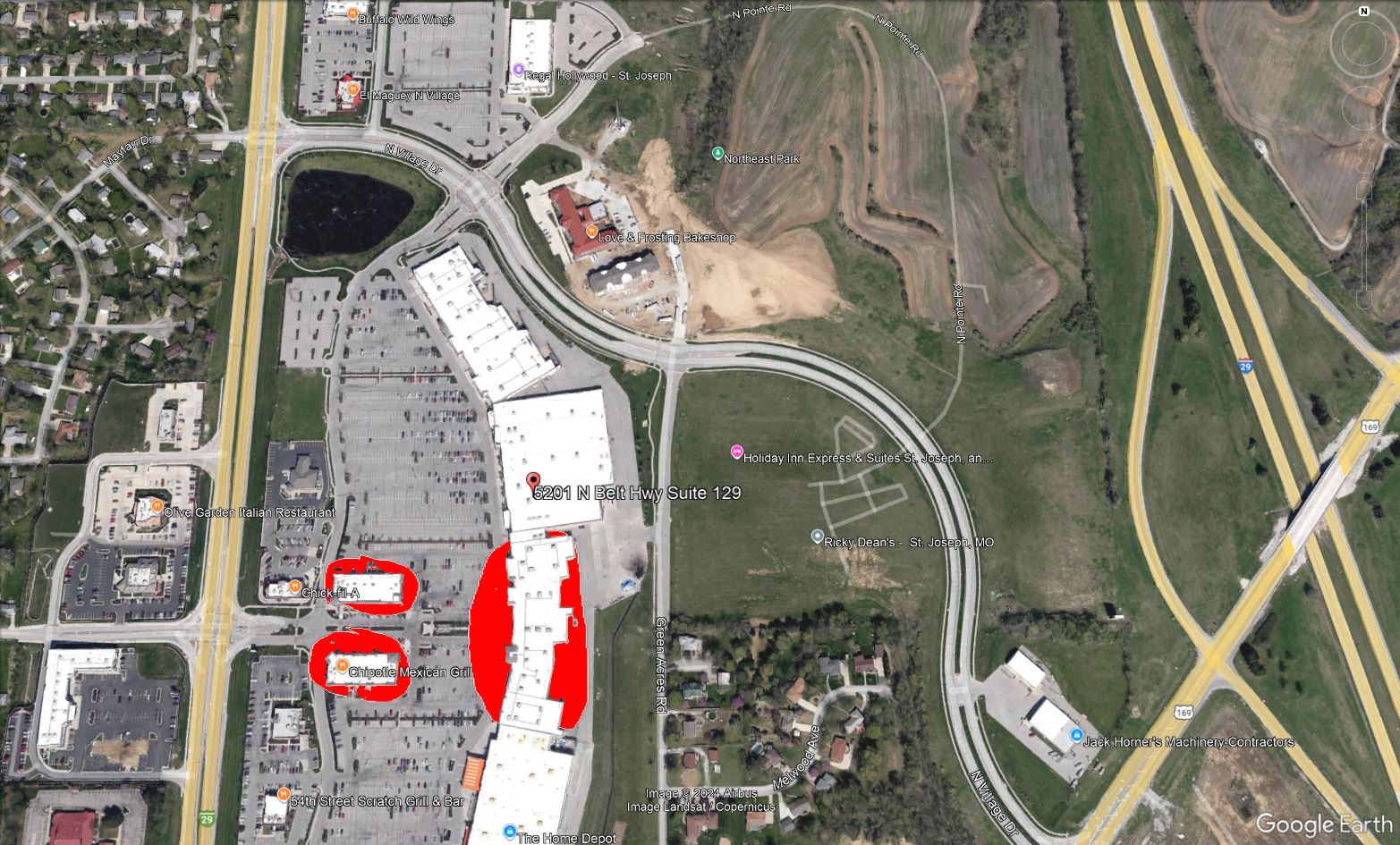CID tax resurfaces for Shoppes at North Village stores

By Leah Rainwater
Shoppers may soon notice they’re spending a few more pennies on purchases at some stores in St. Joseph.
One year after turning down a bill that would turn the Shoppes at North Village into a community improvement district, the tax initiative has been approved.
Interim City Manager, Clint Thompson said the goal of the CID is to make beautification of the retail center an amenity shoppers can look forward to every time they come to the area.
“A community improvement district is an additional sales tax component that a property developer can place on themselves,” Thompson said.
The tax would provide for the upkeep at the North Shoppes, including asphalt and concrete repair and replacement, project management, decorations, landscape projects and more.
After buying the Shoppes at North Village in 2019, Marquee Capital requested the St. Joseph City Council in 2023 to turn the property into a CID. However, that proposal failed to move forward a year ago due to confusion and the need for revision.
Bringing the CID proposal back to the table
In early November when the CID tax bill made its way back to the City Council, it was passed.
“The initial submittal of the CID application, at that time (in 2023), council chose not to actually vote on the issue,” Thompson said. “But to have the developer come back and revise some of the configurations of how the boundaries of the city were conformed to eliminate some confusion of which properties are within the district and which properties are not.”
Now that the proposal has been approved, some stores located at the North Shoppes can charge an additional one cent on top of other sales taxes to fund improvements.
Explaining the CID contract
The CID contract splits the North Shoppes into two districts.
“The use of the city component was really more focused on smaller-type tenant stores that the total purchase was not to the scale of something you might see at a Home Depot,” said Thompson.
District One includes businesses like Panda Express, Chipotle, Bath and Body Works, Crumbl, Old Navy and Five Below.
District Two includes the Regal Hollywood Theater, Rally House, TJ Maxx, Ulta and others.
The districts would essentially exclude big-box stores like Target and Home Depot which own their buildings.
Stores within the two districts will add a one-cent sales tax onto each purchase made, and that money will go toward property upkeep.
Within five years, the revenue from the CID sales tax will equate to $210,000 for District One and $250,000 for District Two to utilize each year for repairs and upkeep.
The CID could fund more than just improvements.
“One way the CID component has been used in the past in similar types of retail projects is it helps lower the cost of their (retailers) rent payments that are required within the area,” Thompson said. “So although it’s a new revenue system, it helps to keep more of those tenants that are part of the formation of that district … help keep their costs lower.”
Effects on shoppers
Thompson said the one-cent tax increase could be seen on shoppers’ receipts within the next few weeks.
Many shoppers said the tax increase is a small price to pay.
“I think one cent isn’t that big of a deal,” said Sami Elkhamri, a St. Joseph resident. “And if it’s going to a good cause, like helping the community, then I’m all for it.”
Another resident said he appreciates efforts to keep infrastructure in good repair.
“I think it’s really important that our spaces are well managed and are clean. So I guess I wouldn’t really have a problem with that,” said Carlos Cerda, a frequent shopper at the North Shoppes.
Thompson said CIDs are not uncommon in shopping districts.
“Zona Rosa (in northern Kansas City) has a CID component as well,” Thompson said. “Most shopping centers do when you look at your actual tax receipt and you see an additional tax. The additional revenue helps to keep the cost of those tenants lower, as far as the lease, to ensure that higher occupancy but also to ensure the development stays up to the expectation that the city and community partnered with initially.”
The CID will be in place for a minimum of 27 years, with the potential of being extended by the City Council for two consecutive 10-year periods.



